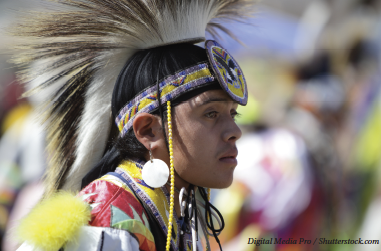Native American Tribes Fear High Health Care Costs
 Native American tribes are facing crippling health care costs as a result of their large employer status per the Affordable Care Act (ACA).
Native American tribes are facing crippling health care costs as a result of their large employer status per the Affordable Care Act (ACA).
The ACA requires large employers, including Native American tribes, to provide private insurance to all employees. Although those who live on Native American reservations qualify for government-sponsored health services through the Indian Health Services (IHS), under the large employer mandate, the ACA requires the tribe to pay for private insurance for all tribe employees in addition to what is provided through IHS public services. Failure to comply with the ACA mandate could result in costly fines.
For the Rosebud Sioux Tribe in South Dakota, which has about 28,000 members, the termination of roughly 500 employees would be required in order to comply with the ACA’s mandate and remain financially solvent, according to an article published on BuzzFeed News (Subbaraman N; June 10, 2016).
The health director of the Rosebud Sioux Tribe estimated that the cost to buy insurance for the current members of the staff would be $4.5 million per year, and the cost of the fines would be $2.5 million per year annually.
Many tribes already face poverty-stricken communities and are simply unable to pay the high costs required. The only item of value for many tribes is their land, which many fear is at risk of being lost to the government as a result of financial debt caused by health care costs.
Executive director of the National Indian Health Board, Evelyn Espinoza, told BuzzFeed News, “We believe that tribes of this nation were never intended to be included in the employer mandate … We are the only minority group of people who have a legal binding treaty with this country to provide health insurance. Our history is not acknowledged.”
Although there have been short-term fixes proposed during conversations between the IHS and multiple government bodies, including the White House, the US Department of Treasury, the Internal Revenue Service (IRS), and the US Department of Health and Human Services, a long-term solution has yet to be implemented.
In an attempt to construct such a long-term solution, two bills have been proposed in the US Congress. The first bill, H.R.3080 - Tribal Employment and Jobs Protection Act (114th Congress (2015-2016); www.congress.gov/bill/114th-congress/house-bill/3080), was presented by South Dakota Rep Kristi Noem in July of 2015 and is now under review by the House Committee on Ways and Means. The second bill, S.1771 - Tribal Employment and Jobs Protection Act (114th Congress (2015-2016); www.congress.gov/bill/114th-congress/senate-bill/1771), was presented during the summer of 2015 by Sen Steve Daines of Montana and was referred to the Senate Committee on Finance. Both bills would amend the Internal Revenue Code to exclude any tribal employer from the definition of “appicable large employer” for the purpose of the employer health care mandate.
Because the two bills have not moved through the legislative pipeline, many tribes have seperately petitioned the IRS to consider waiving the requirement.—Julie Gould













